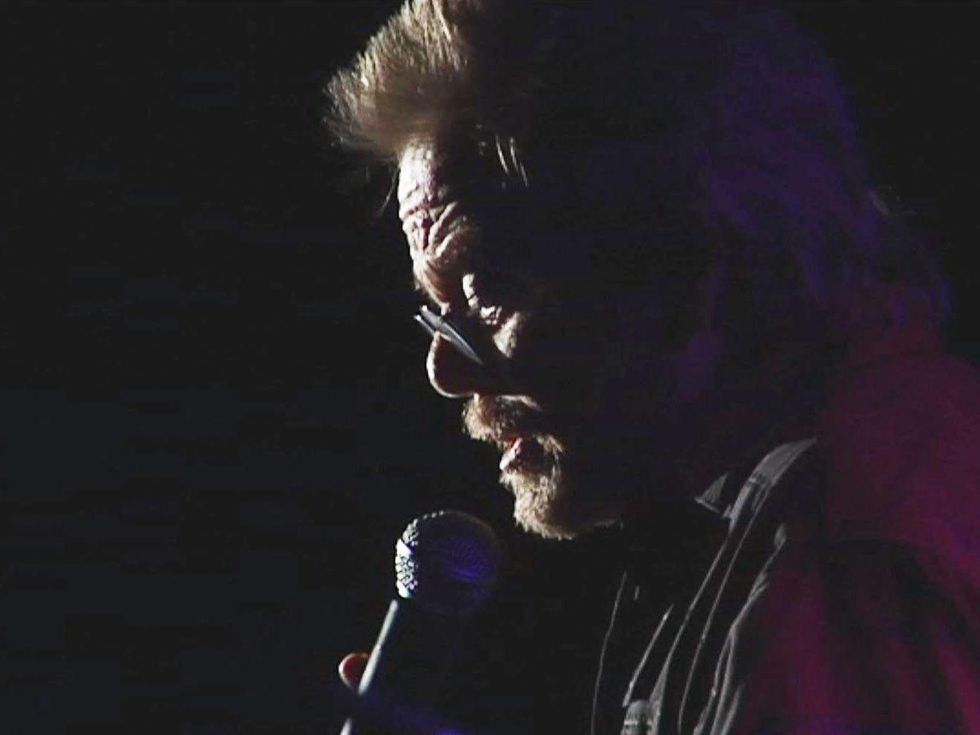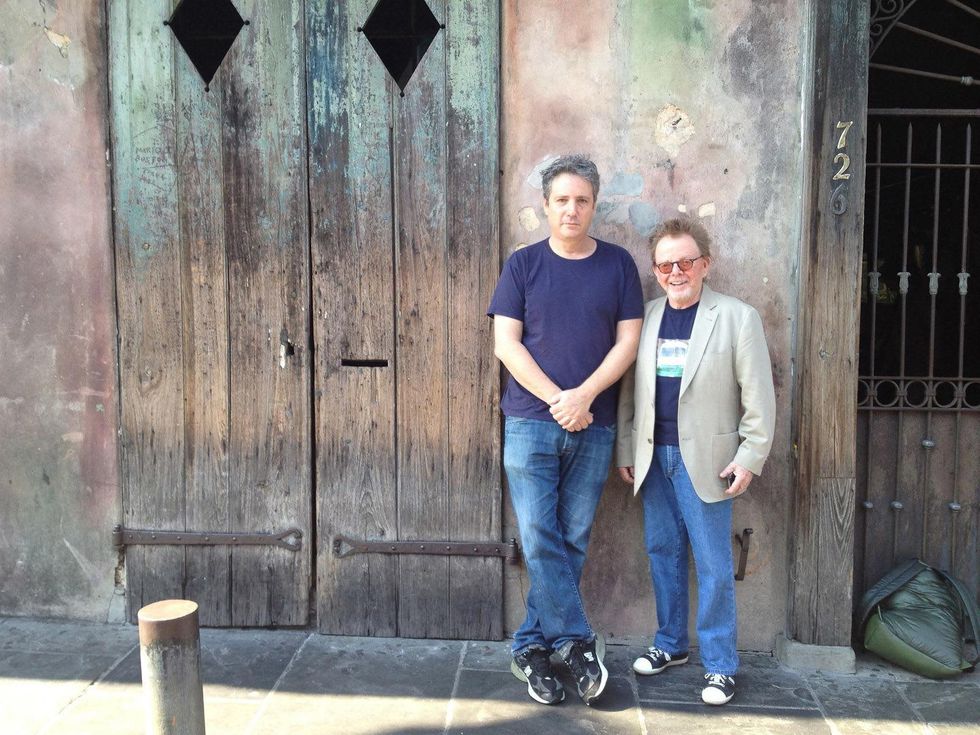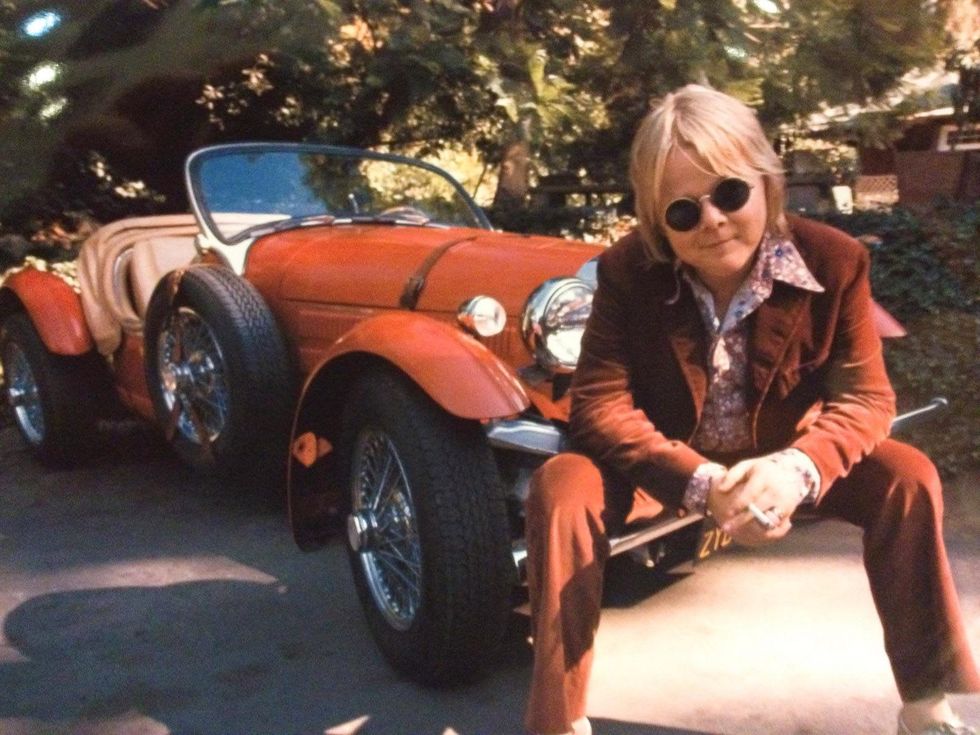Mondo Cinema
What you should be watching at the movies: A doc on a faded superstar, Oscar shorts and modern classics
Right at the start of Paul Williams Still Alive, the terrifically entertaining and surprisingly provocative documentary screening Saturday through Monday at 14 Pews, filmmaker Stephen Kessler admits that when he first started researching his subject, an idol from his childhood, he half expected to be reading obits. That, or a crop of tabloid tales about a dimmed superstar permanently stuck in obscurity.
Much to his delight, he discovered Paul Williams was indeed still alive, and reasonably well. Much to his surprise, he also learned that Williams still performed in concert on a fairly regular basis, albeit in modest venues located everywhere from Winnipeg to The Philippines.
And very much to his occasional consternation, Kessler found Williams frequently skeptical, and not entirely cooperative, when it came to making the documentary that Kessler intended to make.
Williams readily admits to often being a drug-addled showoff during his ‘70s heyday.
For the benefit of those who tuned in late: Throughout the 1970s, Paul Williams was a diminutive dynamo who loomed improbably large as a pop-culture luminary.
He earned fame and fortune as a prodigiously prolific songwriter, penning enduringly popular standards such as “Rainy Days and Mondays,” “We’ve Only Just Begun,” “I Won’t Last a Day Without you” and “Just an Old-Fashioned Love Song” for the likes of Three Dog Night, The Carpenters, Helen Reddy and, no kidding, David Bowie. He wrote for movies — earning an Oscar for “Evergreen,” which he co-wrote with Barbra Streisand for A Star is Born — and for Muppets. “The Rainbow Connection,” which Williams wrote for The Muppet Movie (1979) and has been covered by everyone from Willie Nelson to The Pussycat Dolls, arguably is his best-known tune.
But wait, there’s more: Williams also had success as a solo recording artist, and wide exposure as a film and TV actor. He memorably co-starred in Brian De Palma’s Phantom of the Paradise (for which he wrote original songs) and served as a foil for Burt Reynolds in Smokey and the Bandit. And he made more than 50 appearances on The Tonight Show with Johnny Carson — during an era when even one guest spot on that program might be treasured as a career highlight.
But then, like far too many other ‘70s celebrities, Williams fell out of public favor, and wallowed in wretched excess during much of the next two decades, thanks to a personal and professional meltdown fueled by drugs and booze.
When Kessler finally caught up with his childhood idol, Williams was 20 years sober, happily married, and cheerfully dividing his time between work for sobriety programs — the documentary documents his visit to a charity event in H-Town — and live performances for diehard fans throughout the world.
At first, Kessler, while happy to find Williams had survived his spectacular flameout, seems a bit sad to see the former superstar now playing gigs in hotel lounges and lesser Vegas casinos.
But here’s the thing: Williams doesn’t see it sad at all.
And that more or less establishes the fascinating dynamic at the heart of Paul Williams Still Alive: While Kessler is looking back at a life to make a documentary, Williams — who’s still living that life — is looking forward.
Early on during production of the film, Williams demands that Kessler become an on-screen participant, claiming that it would be difficult, and rather silly, for him to pretend to be unaware of the camera following him. Later, when Kessler quizzes Williams about the low points of his ‘70s superstardom — most notably, a parachute jump for Circus of the Stars — Williams bristles at the criticism implicit in Kessler’s questions.
Kessler, while happy to find Williams had survived his spectacular flameout, seems a bit sad to see the former superstar now playing gigs in hotel lounges and lesser Vegas casinos.
“I feel like this is a dig that I haven’t felt from you before,” Williams snaps. “And I don’t like it.”
Even so, Williams readily admits to often being a drug-addled showoff during his ‘70s heyday. Indeed, in one of the documentary’s most discomforting sequences, he’s visibly pained as he reluctantly watches videotaped evidence of his spoiled-child arrogance while guest-hosting The Merv Griffin Show. To his credit, however, Williams makes no excuses for savoring all the perks that came with fame.
“To be different is difficult,” he says. “To be special is addicting.”
Don’t misunderstand: Williams doesn’t dwell — here or elsewhere in Paul Williams Still Alive — on fortunes reversed or stature diminished. He insists — and Kessler accepts, albeit only gradually — that he’s quite happy with his current showbiz career, and even happier about his work as counselor and guest speaker for organizations combating substance abuse.
But the sometimes subtle, sometimes edgy dramatic tension generated by opposing points of view — Kessler’s and Williams’ — are what make Paul Williams Still Alive uniquely engrossing and satisfying. And there’s a moral to the story: Sometimes your idols don’t live up — or down — to your expectations because, really, your expectations are your problem, not theirs.
They have enough problems of their own to deal with, thank you very much.
BACK AT THE SUNDANCE
After a hiatus of several weeks, the folks at Sundance Cinemas have resumed their policy of a having a dedicated screen — aptly dubbed The Screening Room — devoted to limited-run bookings of unique films, many of them hot off the festival circuit.
The Screening Room reopens Friday with a program of Oscar-nominated shorts — live-action and animated — that are competing this year for Academy Awards. Other upcoming Screening Room attractions include Roman Coppola’s A Glimpse Inside the Mind of Charles Swan III (Feb. 22 to 28), a stylized comedy starring Charlie Sheen, Bill Murray and Jason Schwartzman; Travis Fine’s Any Day Now (March 8 to 14), an award-winning drama starring Alan Cumming and Garret Dillahunt as a gay couple battling for the right to adopt a child with Down syndrome; and Like Someone in Love (March 22 to 28), Iranian filmmaker Abbas Kiarostami’s change-of-pace romantic drama, set in Japan, about sociology student (Rin Takanashi) who moonlights as a prostitute, and the elderly professor (Tadashi Okuno) who starts out as her client, but evolves into her mentor.
Also at Sundance Cinemas this weekend: West of Memphis, filmmaker Amy Berg’s critically acclaimed documentary — co-produced by Peter Jackson — about the protracted legal struggle to stop the state of Arkansas from executing an innocent man.
UNIVERSAL CENTENNIAL
To celebrate the 100th anniversary of Universal Pictures, the legendary Hollywood studio has dipped into its vaults to assemble a touring retrospective of its most popular and/or prestigious releases. The Museum of Fine Arts, Houston will host the H-Town stop on the tour, which kicks off this weekend with screenings of Alfred Hitchcock’s The Birds (7 p.m. Friday), Robert Mulligan’s To Kill a Mockingbird (1 p.m. Saturday), Lewis Milestone’s All Quiet on the Western Front (6 p.m. Saturday), and Quentin Tarantino’s Inglourious Basterds (4 p.m. Sunday). The latter may seem like a curious choice for counter-programming against the Super Bowl, but, hey, never mind.
By the way: You should go ahead and mark your calendar for the 7 p.m. Feb. 9 presentation of Spike Lee’s Do the Right Thing at MFAH, since this particular screening will be presented by that noted film critic, historian and academic . . . well, me, actually.







